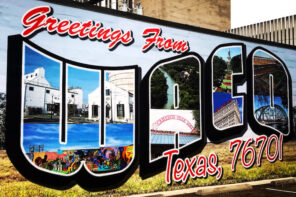The following is an excerpt from Frank Schaeffer’s Patience With God: Faith for People Who Don’t Like Religion (or Atheism)
(Da Capo, 2009).
Ask yourself: What will happen to Rick Warren’s church when Warren dies, leaves, or is thrown out? Will it remain as successful? Are people there for each other and their community? Are they there for Jesus? Or are they there for Rick Warren?
Warren’s message turns out to be less about God than it is about trying to convince his readers to become American-style evangelicals. In other words, to find purpose they have to join the North American individualistic cult of one-stop born-again “salvation” to which Warren belongs. Warren’s Christianity (the leftover residue of the simplistic frontier Protestantism we call “evangelicalism” that broke most connections theological, aesthetic, and liturgical to the historic Christian churches of both the East and West) is not to be confused with what Christians through most of the 2,000-year history of their religion would have recognized as even remotely familiar.
According to traditional Christianity, a person was not “saved” or “lost” in a one-stop magical affirmation of “correct” doctrine, but, rather, the process of salvation was lived out in a community. Salvation was a path toward God, not a you’re-in-or-out event, as in “At two thirty last Wednesday I accepted Jesus.” Just as Hillary Clinton said about child rearing, the process of redemption took a village. Pastors were part of that “village” tradition and were inducted into existing communities of faith. They were not self-made and reinventing the faith according to whim. The heart of worship was sacramental continuity and an unbroken connection to generations that came before.
Bishops and priests came and went, but the Church remained. What the Church provided was a set of tools—liturgical sacramental exercises, things to do to train one to receive God’s love by learning to love others as oneself.
Some members of the Church—East and West—did some very, very nasty things. They oppressed women, killed heretics, started wars, buggered choir boys, persecuted Jews, molested pilgrims, and aided and abetted the institution of slavery. But they usually did get one thing right: Spirituality wasn’t a matter of celebrity leaders who sprang up then faded away. Some terrible celebrity Christian leaders existed, such as the fifteenth century’s nasty, odd, and painting-burning Savonarola of Florence. But celebrities were the exception to an otherwise virtually anonymous pastorate.
Communities built cathedrals over generations. Usually, no one who worked on laying the building’s foundation was around when it was completed. The name of the cathedral was that of the town where it stood (for instance, Chartres Cathedral) or that of a biblical figure (Notre Dame for instance). A few egomaniacal popes (or bishops) aside, churches were not about their leaders but about the people who worshipped in them. There were religious orders in the Roman Catholic Church that bore the names of their founders, such as the Franciscans, but when those orders survived their founders, it was because they were folded into a hierarchical orderly structure. There were egomaniacal “saints” who drew attention to their “holiness” by public displays of self-mortification (the so-called Stylites, or “Pillar-Saints,” ascetics in the Byzantine Empire who stood on pillars preaching, exposed to the elements, while followers gathered around), but they performed their antics outside of churches. Such individualistic displays didn’t penetrate the liturgical practices led by largely anonymous priests.
The North American evangelical/fundamentalist brand of Christianity is the religious version of the American civil religion: consumerist individualism. Today’s “Stylites” are more often found in private jets, but they still have followers who conflate holiness with success American style—in other words, as measured by money, possessions, numbers, and (above all) celebrity status. The consumer picks a pastor based on where the action seems to be: “Wow, you ought to hear our pastor!” Such “churches” are often founded by a man or woman who started them the way other men and women start a restaurant or a movie company. In Warren’s case, he is pastor of a church called Saddleback, but it’s more properly known as “Rick Warren’s church,” just as the Crystal Cathedral came to be known as “Robert Schuller’s church,” and the Billy Graham Evangelistic Association has its founder’s name in the same way as the Ford Motor Company bears the name of its founder.
Atheist or Liar
Media mogul Rupert Murdoch now owns the largest “Christian” publishing company, having bought it out and then folded it into his stable of publishing giants, one of which publishes—that’s right—Rick Warren.
One can’t picture any scenario in which Warren would be thrown off the evangelical/fundamentalist team, other than if he started to officiate at gay weddings. He answers to no one, let alone to a tradition of liturgical practice, or, God forbid, a bishop, that might diminish the go-it-alone individualism (otherwise known as “God’s leading”) of market capitalism with a Jesus twist that works so well for him. Warren makes past evangelical/fundamentalist superstars such as Lewis, Falwell, Schuller, or my dad [Francis Schaeffer] seem insignificant.
Warren’s is star power on an Oprah level. Warren gave the invocation at a president’s inauguration. Warren’s church is huge. He’s the author of the all-time bestselling book ever published in the history of American publishing. God is blessing! Right?
Maybe not. A Rick Warren, a C. S. Lewis, and a Francis Schaeffer are the essence of evangelical/fundamentalist success, but they also represent the Achilles heel of American evangelicalism. Personality cults with no accountability and no tradition and no structure to fall back on when the “Dear Leader” dies, or is found to have “fallen,” whatever, are no better than the men and women they’re built on. The “something bigger” you thought you joined just turns out to just be some smooth-talking guy named Rick.
The evangelical/fundamentalist religion is no different in its core “values” from the celebrity-worshiping, entertainment-oriented society it claims to be a prophetic witness to. In this vein it’s no coincidence that Billy Graham’s alma mater, the aforementioned Wheaton College, also has a “museum” attached to its campus in which Disneyland-like experiences are offered. This attraction is described on the school’s website as a “journey through the Museum [that] takes you on a Walk Through The Gospel, with a stirring three-dimensional presentation of the Christian message.” But that is only after you have experienced an “encounter [with] one of the loveliest and most fascinating presentations of the basic Christian message in The Cross of The Millennium. From here, you’ll enter a major section of the Museum which highlights the Life and Ministry of Billy Graham.”
If the United States Marine Corps caved to the consumer culture the way the evangelicals have, each drill instructor would be individually picked by each recruit, some choosing DIs based on looks, others on charm, yet others because this or that DI wore a cool uniform or was “nicer than those other guys.” The process might be fun, but the idea that the Marines are identifiable because each Marine knows that all other Marines share the same experience of boot camp, values, and discipline would be lost. The word Marine would lose its meaning if all recruits went to boot camps that suited them personally. The Marine Corps would become just another part of the entertainment industry/consumer culture, which is exactly what the evangelical/fundamentalist churches are today, with a therapeutic twist that adds feeling good to the product list.
If I have heard this once, I have heard it (or rather read it in emails) literally hundreds of times. “I can’t say this in public, but…” has been the start of so many emails from many evangelical and Roman Catholic and (to be truthful) several Orthodox leaders too, as well as ordinary folks living what amount to intellectual/spiritual double lives. Perhaps it’s because they are being presented with bad alternatives that they believe they must choose between:
Frank,
After leaving the strait jacket of evangelicalism, I can breathe… I was out of step as an evangelical pastor [with] my quotes of Bob Dylan, celebration of sexuality when the [biblical] passage called for it and a demand for truth though it was only when I was out from the oppression of the movement that I realized how much compromise had been interwoven into my life as pastor and leader.
Cordially, D.
I can’t prove this, but I think that any person who remains a “professional Christian” in the evangelical/fundamentalist world for a lifetime, especially any pastor, risks becoming an atheist and/or a liar. Such individuals put on an act of certainty. Sooner or later they become flakes faking it, or quit. Worse yet, some just stop asking questions. The very fact that a preacher can fool others when he or she has so many doubts makes the self-appointed mediator of faith the deepest cynic of all if, that is, he or she doesn’t embrace paradox.
Warren can’t do more than act the part of Rick Warren being Rick Warren. He also has to be “into” whatever the Church Ladies are into at the moment. And woe betide Warren if he expresses any truths about his doubts and failings or, worse yet, casually mentions that he’d rather be, say, a secular Jew free to do or say what he wants without a gaggle of low-IQ evangelicals parsing his every move.
Warren knows that he must park his conscience at the door of his golden cage, or his empire will melt away under the intolerable weight of the gossip of the Church Ladies. Warren got a whiff of this when he was foolish enough to go on Larry King Live in the spring of 2009, and mention that maybe he wasn’t as firmly against gay marriage as he was said to have been in the wake of the battle over gay marriage in California last year. As the Washington Times reported on April 11, 2009, “I was extremely troubled,” said Al Mohler, president of the Southern Baptist Theological Seminary in Louisville, Kentucky. “Absolutely baffling,” huffed Wendy Wright, president of the far-right Concerned Women of America organization. Warren learned, if he didn’t already know, that the only thing evangelicals will never forgive is any letting up on hating the “other.”
That’s what my friend Richard Cizik, former vice president of the National Association of Evangelicals, learned. He was being interviewed by Terry Gross on Fresh Air in 2009 and mentioned that maybe he wasn’t against gay civil unions. He didn’t even mention gay marriage. He was fired within days. Rich told me that he was never even asked by the board what he’d meant by his remarks and was never given a chance to respond.
Cizik had almost been forced out several years before when James Dobson, of Focus on the Family fame, wrote to the NAE board demanding Cizik’s dismissal for saying that he thought global warming was real. Cizik got away with that apostasy against the Republican Party, which had long since come to be a stand-in for the “true church” for power-hungry evangelical/fundamentalist leaders such as Dobson. But when Cizik didn’t hate gays enough, game over!




